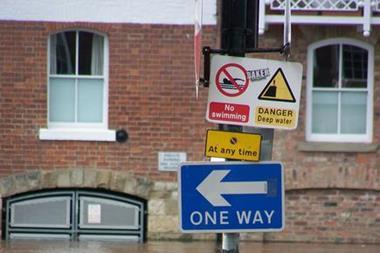Akzo Nobel, BC Hydro, Mondi, Rio Tinto, and Syngenta ‘road-test’ new guidelines
Sustainable development groups have launched a set of guidelines designed to help companies proactively develop strategies to manage risks and opportunities arising from ecosystem degradation.
The guidelines were developed by the World Resources Institute (WRI) in collaboration with the Meridian Institute and World Business Council for Sustainable Development (WBCSD).
Five WBCSD members—Akzo Nobel, BC Hydro, Mondi, Rio Tinto, and Syngenta—road-tested the methodology and provided input to its design.
Jonathan Lash, president, WRI, said: 'The world’s forests, wetlands, and other ecosystems are under tremendous pressure due to climate change, land conversion, and many other factors. As ecosystems degrade, companies will face operational, regulatory, and reputational risks while those that offer solutions may find new business opportunities and new sources of revenue.'
'Ecosystems provide companies with a wide variety of benefits or services including freshwater, wood, pollination, climate regulation, and protection from natural hazards, to name a few.'
John Ehrmann, managing partner of the Meridian Institute, said: 'Ecosystem services are often unacknowledged, yet they underpin many corporate activities. I am pleased with the feedback from company managers who are finding the guidelines helpful for developing strategies that improve both corporate performance and ecosystem stewardship.'
The road-testers found that the guidelines can provide a number of other benefits as well. They can help companies anticipate new markets and government policies that may emerge in response to ecosystem degradation. They can strengthen corporate environmental impact assessments by adding considerations traditional methods may overlook. They also can help companies better manage conflicts over resources, identifying options for better trade-offs between ecosystem services.
“The methodology helped us identify and rank emerging problems, and provided us with a framework for turning risks into opportunities.
Peter Gardiner, natural resources manager at Mondi
Peter Gardiner, natural resources manager at Mondi, a leading international paper and packaging manufacturer, said: ‘The methodology helped us identify and rank emerging problems, and provided us with a framework for turning risks into opportunities.’
He added: ‘Mondi’s newfound strategies include a number of operational changes that will increase the company’s efficiency in using freshwater, a scarce ecosystem service, and lead to new markets for the company’s byproducts.’
Steve Hunt, senior vice president, Asia-Pacific, Eka Chemicals, a division of chemical giant Akzo Nobel, commented: ‘The Corporate Ecosystem Review helped us to better understand how a number of emerging environmental changes are likely to affect our business and how our company might best position itself to respond to these changes.’
Some road-testers, such as Mondi and BC Hydro, used the guidelines to gain insight into the direct implications that ecosystem trends pose for them. Other road-testers, such as Akzo Nobel and Syngenta, applied the methodology to understand the risks faced by a segment of their customers due to ecosystem degradation and, in turn, discovered opportunities for new products or services that address these risks. The guidelines profile these and other road-test experiences.
“We’re going to be hearing a lot about the Corporate Ecosystem Services Review. A couple dozen more WBCSD members are already taking it up this year,” said Björn Stigson, president of the WBCSD. 'Leading companies realize that they need to be prepared for the business challenges posed by ecosystem decline.'
The guidelines were launched at WBCSD’s annual conference of delegates in Switzerland.

















No comments yet